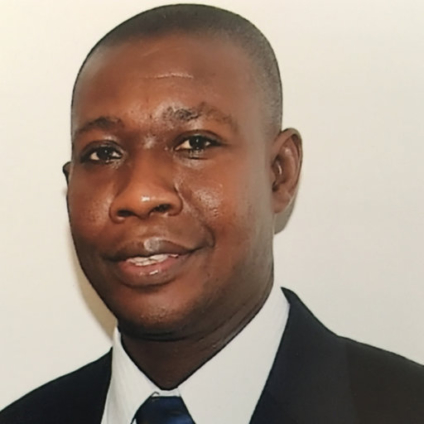The Head of the Economics Department of the University of Ghana, Professor William Baah-Boateng, says the interest rates policy hikes are not solely responsible for the high lending rates at commercial banks.
According to him, the rapid cedi depreciation and its attendant inflation are the drivers of lending rates currently.
He explained that despite the hikes in policy rates, commercial banks have been pegging their lending rates against the inflation rate to ensure that the money they lend out does not go to waste.
“So when inflation is going up, commercial bank will not just look at the policy rate, but will look at inflation. And, therefore, we don’t have to look at policy rate as the main thing that is going to drive lending rate, it is the rate of inflation currently that is going to drive lending rate,” he said on JoyNews’ PM Express Business Edition.
“And therefore, the Bank of Ghana looks at the policy rate and also looks at what is happening in the global market - because interest rate in US, interest rates in other countries are going up because they are also fighting their inflation and then they look at where the exchange rate depreciation is coming from,” he added.
His comment comes on the back of the Bank of Ghana increasing the policy rate by 300 basis points to 22%, after an Emergency Monetary Policy Committee meeting on August 17th, 2022.
The move is part of measures to address the risks to the inflation outlook.
According to Professor Baah-Boateng, the Bank of Ghana could have even gone higher than the 300 basis points, “but I think the optimum as it is, is 300 basis points.”
He explained that raising the policy rate was crucial to shifting focus of investment locally thus ensuring investors who would have otherwise transferred their funds abroad amidst the current economic crisis will invest it in the country instead.
“Now if you look at the balance of payment account, you’ll realize that the major problem is coming from the capital account because foreign investors holding our domestic bonds are flying out their investment. So what can be done to tame that kind of demand for foreign currency?
“So if you raise the policy rate, then you’re trying to change or shift the focus of investment locally. So those who thought they had to send their money back because they’re not getting the best returns will then think twice.
“So if demand is able to be tamed and the exchange rate does not go up but it remains as it is then it means that you have given the first dose to the patient, then you can then think about what best can be done to also look at the other side. So for me the Bank of Ghana could have even gone higher than the 300 basic points but I think the optimum as it is, is 300 basis points,” he explained.
Latest Stories
-
Securities industry: Assets under management estimated at GH¢81.7bn in quarter 3, 2024
52 seconds -
Gold Fields Ghana Foundation challenges graduates to maximise benefits of community apprenticeship programme
2 hours -
GBC accuses Deputy Information Minister Sylvester Tetteh of demolishing its bungalow illegally
2 hours -
Boost for education as government commissions 80 projects
2 hours -
NAPO commissions library to honour Atta-Mills’ memory
2 hours -
OmniBSIC Bank champions health and wellness with thriving community walk
2 hours -
Kora Wearables unveils Neo: The Ultimate Smartwatch for Ghana’s tech-savvy and health-conscious users
2 hours -
NDC supports Dampare’s ‘no guns at polling stations’ directive
2 hours -
Police officer interdicted after video of assault goes viral
3 hours -
KNUST’s Prof. Reginald Annan named first African recipient of World Cancer Research Fund
3 hours -
George Twum-Barimah-Adu pledges inclusive cabinet with Minority and Majority leaders
3 hours -
Labourer jailed 5 years for inflicting cutlass wounds on businessman
3 hours -
Parliament urged to fast-track passage of Road Traffic Amendment Bill
3 hours -
Mr Daniel Kofi Asante aka Electrician
3 hours -
Minerals Commission, Solidaridad unveils forum to tackle child labour in mining sector
3 hours

